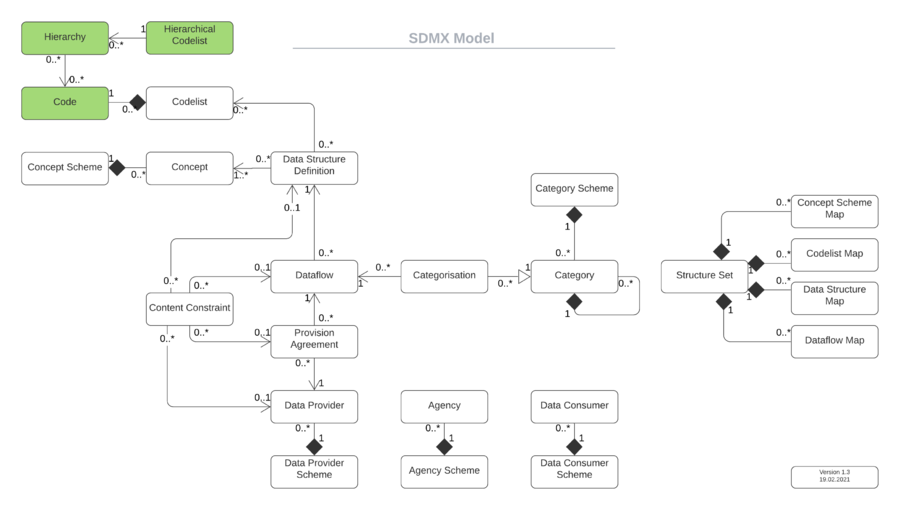Hierarchical Codelist
Contents
Overview
The Codelist, supports a simple hierarchy of Codes, and restricts any child Code to having just one parent Code. Hierarchical Codelists enable the construction of one or more Code Hierarchies (on top of Codelists).
The principal features of the Hierarchical Codelist are:
- A child code can have more than one parent.
- There can be more than one code that has no parent (known as Root codes in the Registry).
- There may be many hierarchies (or “views”) defined, in terms of the associations between the codes. Each hierarchy serves a particular purpose in the reporting, analysis, or dissemination of data.
- The levels in a hierarchy can be explicitly defined or they can be implicit: (i.e., they exist only as parent/child relationships in the coding structure).
Structure Properties
| Structure Type | Standard SDMX Structural Metadata Artefact |
|---|---|
| Maintainable | Yes |
| Identifiable | Yes |
| Item Scheme | Yes |
| SDMX Information Model Versions | 2.0, 2.1 |
| URN - HierarchicalCodelist namespace | urn:sdmx:org.sdmx.infomodel.codelist.hierarchicalcodelist |
Context within the SDMX 2.1 Information Model
The schematic illustrates the core artifacts of the SDMX 2.1 Information Model, and how Hierarchical Codelists and Codes fit in.
Usage
Codes used in the Hierarchical Codelist are not themselves contained in the list. Instead, they are referenced from the lists and are therefore maintained in one of more Codelists. In the Registry, these are known as Referenced Codelists.
A Hierarchical Codelist may contain many hierarchies and is multi-lingual.
You can find more information on Hierarchal Codelists in the Structural Metadata Management article.
Conventions
Heirarchial Codelist IDs IDs are conventionally uppercase using underscores '_' as separators if required.
Note that organisations wishing to be compliant with accepted models for statistical classifications should ensure that the Id is the number associated with the Level, where Levels are numbered consecutively starting with level 1 at the highest Level.
You can seem more examples and information on Identities in this article.
